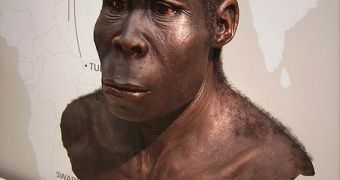New scientific studies revealed the fact that men and women probably were not equal members of the largest African exodus, which is believed to be responsible for the colonization of the entire world. This massive migration accounts for all races that are currently spread outside Africa, and the mass movements began as far back as 2 million years ago, with Homo erectus.
The Harvard School of Medicine now claims it found genetic evidence that the large groups of people that left Africa to colonize the other continents were made up mostly of men. Researchers in the field say that the discoveries point to the fact that the old theories – according to which women only migrated on short distances, and men only on long ones – are correct.
By comparing X chromosomes with other, non-gender specific chromosomes, the scientists can tell whether most of the population was male or female. The new technique can help them establish with a great degree of certainty the gender composition of early human groups. Tracing down the descendants of the early travelers, geneticists can tell how exactly races were formed, and how come there are numerous population subgroups in various isolated parts of the world who are still unevolved.
The researchers add that evolution must have been a group effort, seeing how the places where many people gathered, such as the Greek city-states, Babylon, Rome and Constantinople, among others, were cradles of civilization and innovation, whereas the thick forests in the jungles offered only a limited experience, in terms of science. So most such communities, which still live isolated, have no idea what innovation means and still dwell in Ancient traditions and customs, which rule their daily lives.
Alon Keinan, the leader of the new study, says that his team still needs to investigate the exact reason for which women were so few in the migrations. He says that natural selection can also be considered a very important factor for the spreading of humans, as women needed to get tougher and more resilient fast, in order to cope with the demands of such long routes.

 14 DAY TRIAL //
14 DAY TRIAL //